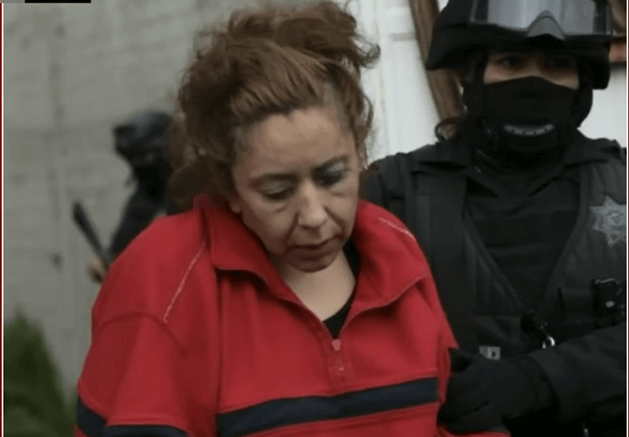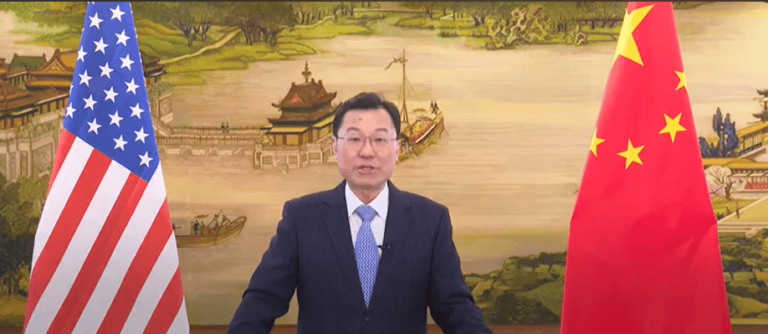Gustavo Petro significantly restructures his government, removing seven ministers. Will Colombia’s left-wing president’s new beginning be successful?
This week in Colombia, there was a one-of-a-kind bang. President Gustavo Petro publicly requested his 18 ministers to retire on the evening of April 25, 2023. The next day, it was stated that the resignations would only affect the ministries of finance, agriculture, interior, health, science, information and communication technology, transportation, and presidential administration. The resignation of popular Agriculture Minister Cecilia López and Finance Minister Jose Antonio Ocampo, both of whom are well-connected on the world scene, is particularly grieved both domestically and internationally. Their departures encourage conjecture that there will be greater programming closeness and less contradiction in the future.
This effectively ended the public squabbles that had raged for several weeks inside the colourful governing coalition of Petros Pacto Histórico, the conventional conservative and liberal parties, the Partido de la U and the Communist Party of Colombia, as well as numerous other minor groups.
This is not an unusual move under the country’s presidential system; it is covered by the 1991 constitution and has previously been utilised to break political deadlocks. Petro’s three successors seized the chance as well: ultra-right Alvaro Uribe in 2010, Nobel Peace Prize winner and head of state Juan Manuel Santos in 2013 and 2017, and unpopular President Iván Duque in 2019.
However, the circumstances at the time cannot be compared to the current situation: Petro’s decision to call for the resignation of his cabinet after only nine months in office is unprecedented in the country’s recent history. Never before has a president called for the resignation of all of his cabinet members so early in his presidency. It caught most political observers and the fractured opposition off guard. Even days after the ongoing political crisis peaked, the general Colombian public is still perplexed about Petro’s motivations.
Should the disagreement over the planned vote on a more citizen-friendly and social health insurance system be the only reason? The President’s back-and-forth on this major reform pledge has held the country in suspense for several weeks, and it was already one of the causes for the departure of the liberal Minister of Education and two other cabinet ministers at the end of February. Nonetheless, individual coalition MPs from the Conservatives, Liberals, and the still powerful de la U publicly stated their support for the complex law, provoking the wrath of their party leaders, who openly threatened sanctions and disciplinary proceedings.
The conventional parties’ nominal support for the government’s objectives contrasted with a factual, contemporaneous resistance to the primary content of Petro’s reforms. Working together in the ruling coalition became untenable as a result of these ongoing difficulties. This situation became an increasing burden for the leader, particularly during the difficult period in which he attempted to improve relations with neighbouring Venezuela, prepare for the third round of negotiations with the remaining guerrilla group National Liberation Army (ELN), and with a plethora of other criminal groups and groupings to find concrete approaches for a comprehensive peace (Paz Total).
Many people regard Petro’s decision as consistent, courageous, and decisive. Particularly from the many different forces and socioeconomic groupings closest to his programme and political ambition, which enabled him and his vice-president Francia Marquez to achieve a historic win last year. They now expect that the promised progressive views on social justice, climate and environmental protection, agriculture and economics, feminist politics, and a new drug strategy will be prioritised. The Pacto Histórico and its linked parties’ new ministers could now see to that. Then:
Petro’s followers increasingly believed that the established parties’ backing of the reform plans had been purchased at exorbitant political costs. The agreement between diverse political factions, which was first seen positively, gradually led to the President’s prevention of central government concerns. Furthermore, there have been few noticeable improvements in the central political areas of security, state presence, and social justice since Petros took office, and his motto, Cambio por la vida, or change for life, has yet to be defined in greater detail. Furthermore, there are daily reports of kidnappings.
It is quickly forgotten that Petro’s predecessor in power left him with a mortgage on the peace pact signed with the FARC in 2016 that cannot be paid off in a few months. This also applies to the economy, the environment, the labour market, education, and pensions, as well as the improvements hoped for and expected in these sectors, which require fundamental and longer-term reforms yet frequently move at a snail’s pace and face several setbacks. There is now nothing more than optimism for the overwhelming majority of Colombians who are still impacted by poverty, hunger, and limited educational and job prospects.
Despite all of the calls to accelerate the socio-ecological transition, phase out coal production, focus more on renewable energies, and prioritise environmental protection and nature conservation, there is a significant gap between claims and reality. Petro’s speech to the United Nations, in which he declared the drug war a failure, has so far been met with too few recommended adjustments or actions – small farmers continue to cultivate coca plants owing to a lack of alternatives. The manual use of glyphosate has a long-term harmful impact on all life. All individuals engaged in the value chain for the intoxicant cocaine are still being persecuted and criminalised.
Under these conditions, the historic upheaval that gripped the country a year ago has come to a halt; many expectations have yet to be met, and disappointments have given way. This has little to do with the politically responsible players not working hard enough or lacking the political will to put the government programme into action. Rather, the ambitious plans and attempts to address all of the unfinished reforms at the same time have raised expectations in the Colombian population that cannot be met in the short term.
However, neither personnel nor content alternatives are to be expected from the pulverised ultra-right opposition. Petro’s opponent in the second round of the presidential election, populist entrepreneur Rodolfo Hernandez, has faded from public view and returned to insignificance. Petro’s predecessor, Alvaro Uribe, on the other hand, who has survived multiple criminal prosecutions since his unsuccessful effort to amend the constitution for a third term, remains active in Colombian politics both behind and in front of the camera, and sets his own accents.
However, under the current conditions, a comeback to the national level remains out of the question for him – his name is too associated with the catastrophic government of Ivan Duque and the Falsos positivos linked to the 6,402 innocently murdered by state institutions who were passed off as FARC fighters.
Gustavo Petro and Francia Marquez have a second shot with this cabinet reshuffle, which is now much more ideologically aligned with the President’s goal – they must grab it, and they don’t have much time. The significant regional elections, which will take place at the end of October 2023, will elect province governors and deputies for local parliaments in addition to mayors. If the conventional parties, which are strongly anchored there, win, the president’s job will become considerably more difficult. However, if the parties associated with Petro receive a strong mandate, the socio-political change that many are hoping for could gain new impetus, as well as pave the way for the progressive left camp in the future.
Petro must thus strive to pass the healthcare reform in its existing shape via parliament. The same is true for the continuing processes for a new labour legislation aimed at reducing informal employment and giving employees greater rights, as well as the pension reform, which is still in its early stages. Because he lacks a majority within his own party, it will be up to him and his previous supporters to negotiate.
Following the shock, right-wing opposition parties will continue to try to sabotage efforts towards a more socially and economically diverse Colombia that is less reliant on oil exports, respects human rights, and strengthens democracy. Attacks against Vice President Marquez will continue to be racial and sexist.
Gustavo Petro has always managed to positively surprise friends and critics in the past – the US government’s commitment to support Colombia in the fight against the man-made climate crisis with approximately 500 million US dollars is just as much a part of this as the European government’s commitment Union, the Andean country with approximately 26 million euros for Paz Total projects and to assist with migration challenges. Without this international – especially European and German – assistance, the Petro/Marquez duo’s plans for a safer, more peaceful, and more sustainable Colombia would be much more difficult to achieve. Colombia’s allies would be wise to keep their agreement. It is especially crucial to be able to rely on value-based friendships during difficult times.
Sources: Oliver Dalichau/Sarui Tolosa/IPG-JOURNAL










+ There are no comments
Add yours